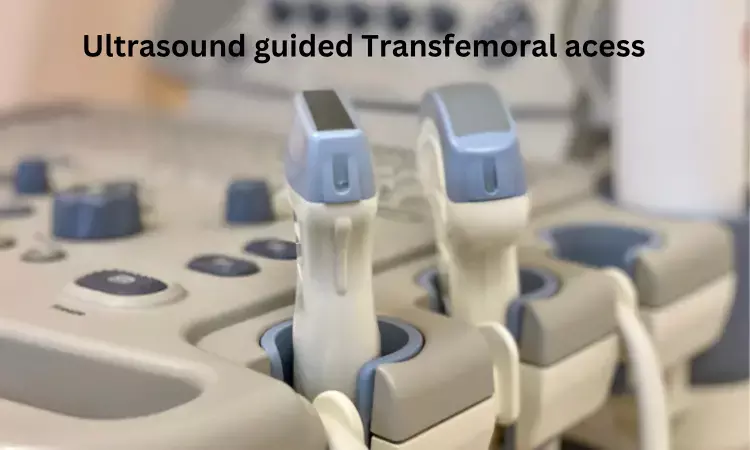- Home
- Medical news & Guidelines
- Anesthesiology
- Cardiology and CTVS
- Critical Care
- Dentistry
- Dermatology
- Diabetes and Endocrinology
- ENT
- Gastroenterology
- Medicine
- Nephrology
- Neurology
- Obstretics-Gynaecology
- Oncology
- Ophthalmology
- Orthopaedics
- Pediatrics-Neonatology
- Psychiatry
- Pulmonology
- Radiology
- Surgery
- Urology
- Laboratory Medicine
- Diet
- Nursing
- Paramedical
- Physiotherapy
- Health news
- Fact Check
- Bone Health Fact Check
- Brain Health Fact Check
- Cancer Related Fact Check
- Child Care Fact Check
- Dental and oral health fact check
- Diabetes and metabolic health fact check
- Diet and Nutrition Fact Check
- Eye and ENT Care Fact Check
- Fitness fact check
- Gut health fact check
- Heart health fact check
- Kidney health fact check
- Medical education fact check
- Men's health fact check
- Respiratory fact check
- Skin and hair care fact check
- Vaccine and Immunization fact check
- Women's health fact check
- AYUSH
- State News
- Andaman and Nicobar Islands
- Andhra Pradesh
- Arunachal Pradesh
- Assam
- Bihar
- Chandigarh
- Chattisgarh
- Dadra and Nagar Haveli
- Daman and Diu
- Delhi
- Goa
- Gujarat
- Haryana
- Himachal Pradesh
- Jammu & Kashmir
- Jharkhand
- Karnataka
- Kerala
- Ladakh
- Lakshadweep
- Madhya Pradesh
- Maharashtra
- Manipur
- Meghalaya
- Mizoram
- Nagaland
- Odisha
- Puducherry
- Punjab
- Rajasthan
- Sikkim
- Tamil Nadu
- Telangana
- Tripura
- Uttar Pradesh
- Uttrakhand
- West Bengal
- Medical Education
- Industry
Ultrasound guided transfemoral access may increase safety during coronary procedures

Cardiac catheterization is an important modality in assessing and treating coronary artery disease. In the past years, trans-femoral access (TFA) is the benchmark for coronary intervention recently published evidence favours transradial access (TRA).
The femoral artery will still be used in a considerate proportion of patients undergoing complex Percutaneous intervention (PCI), especially in PCI of chronic total occlusions (CTO). Ultrasound-guided puncture of the femoral artery may reduce clinically relevant access site complications, but robust evidence is lacking up to date.
A recent study in Eurointervention journal, compared ultrasound (US)-guided transfemoral access (TFA) versus non-US-guided TFA from randomised data in an individual participant-level data (IPD) meta-analysis and found that in patients undergoing coronary procedures by US guided TFA, was efficient in decreasing the composite outcome of major vascular complications or bleeding and may be especially helpful when using vascular closure devices.
Researchers conducted a systematic review and an IPD meta-analysis of all randomised controlled trials comparing US-guided versus non-US-guided TFA for coronary procedures. They performed a one-stage mixed-model meta-analysis using the intention-to-treat population from included trials. The primary outcome was a composite of major vascular complications or major bleeding within 30 days.
The key findings of the study are
• A total of 2,441 participants (1,208 US-guided, 1,233 non-US-guided) from 4 randomised clinical trials were included.
• The mean age was 65.5 years, 27.0% were female, and 34.5% underwent a percutaneous coronary intervention.
• The incidence of major vascular complications or major bleeding (34/1,208 [2.8%] vs 55/1,233 [4.5%]) was lower in the US-guided TFA group.
• In the prespecified subgroup of participants who received a vascular closure device, those randomised to US-guided TFA experienced a reduction in the primary outcome (2.1% vs 5.6%), while no benefit for US guidance was observed in the subgroup without vascular closure devices (4.1% vs 3.3%).
Researchers concluded that “In participants undergoing coronary procedures by TFA, US guidance decreased the composite outcome of major vascular complications or bleeding and may be especially helpful when using vascular closure devices.”
Reference: Marc-André d'Entremont1,2,3, MD, MPH; Sulaiman Alrashidi3, MD; Arnold H. Seto et al; Ultrasound guidance for transfemoral access in coronary procedures: an individual participant-level data metaanalysis from the femoral ultrasound trialist collaboration; Eurointervention,
MSc. Neuroscience
Niveditha Subramani a MSc. Neuroscience (Faculty of Medicine) graduate from University of Madras, Chennai. Ambitious in Neuro research having worked in motor diseases and neuron apoptosis is interested in more of new upcoming research and their advancement in field of medicine. She has an engrossed skill towards writing and her roles at Medical dialogue include Sr. Content writer. Her news covers new discoveries and updates in field of medicine. She can be reached at editorial@medicaldialogues.in
Dr Kamal Kant Kohli-MBBS, DTCD- a chest specialist with more than 30 years of practice and a flair for writing clinical articles, Dr Kamal Kant Kohli joined Medical Dialogues as a Chief Editor of Medical News. Besides writing articles, as an editor, he proofreads and verifies all the medical content published on Medical Dialogues including those coming from journals, studies,medical conferences,guidelines etc. Email: drkohli@medicaldialogues.in. Contact no. 011-43720751


